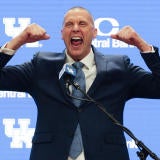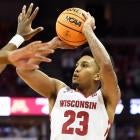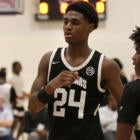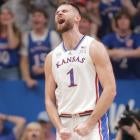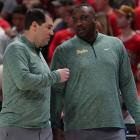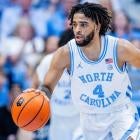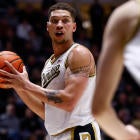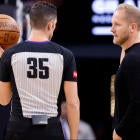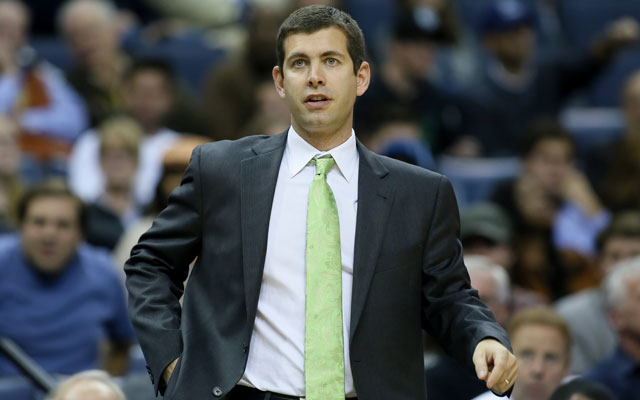
More College Basketball: Season preview | Top 25 (And One) | Conference predictions
MEMPHIS, Tenn. -- After the final buzzer sounded and the assembled media had left, I found myself alone with Brad Stevens late Monday in a hallway at FedExForum, at which point I asked the simplest question you can ask a coach who is suddenly losing games in a way he's never lost them before.
"How are you holding, up?"
"I don't like losing," Stevens told me. And that goes without saying, right?
Nobody likes losing.
To pretend otherwise would be silly.
But it's especially hard for Stevens, and for two reasons.
- He's never lost like this before.
- There's not much he can do about it.
Stevens, the former Butler coach, began his fourth game in the NBA with a starting lineup of Avery Bradley, Gerald Wallace, Jeff Green, Brandon Bass and Vitor Faverani. His team is called the Boston Celtics and they wear green uniforms, but these are not your grandfather's Celtics. Or your father's Celtics. Or even last year's Celtics.
The roster is atrocious.
Nobody could win with this roster. So it was no surprise when the Grizzlies pulled away and beat the Celtics 95-88. The difficult part is dealing with it.
"You just understand where we are and where we have to go," Stevens said. "You do your best to focus on what's next and not pay too much attention to anything else."
Deep down, Stevens understands the deal -- as do his bosses. The Boston ownership group is firmly in Stevens' corner, and his six-year contract is a tangible sign of the organization's commitment to him. He won't lose his job after this season or next season or even a third season regardless of what happens, I don't believe. Put another way, Stevens probably has as much job security as any NBA coach not named Gregg Popovich, and that must be reassuring on some level. But all the losing is still hard to stomach because, again, this is not something Stevens has ever gone through.
I mean that literally.
While Stevens was taking Butler to back-to-back title-game appearances and winning more games through his first six years as a head coach than anybody in Division I men's basketball history, this is worth remembering: he never lost four consecutive times. Yes, Stevens had lost three straight games -- most recently in December 2011. But he backed that on Dec. 17, 2011 with a win over Purdue, meaning Monday's loss in Memphis made Stevens a loser for the fourth straight time for the first time ever.
And everybody knew it was coming.
Truth is, Stevens will probably lose for the fifth straight time on Wednesday, sixth straight time on Friday and seventh straight time on Saturday. He's going to lose a lot this season. He's going to lose way more often than he wins. Which has led to countless people asking me whether Stevens actually made the right decision to leave Butler in July. Each time, I tell them that, yes, he absolutely did, and for a variety of reasons.
The financial reason is undeniable.
A contract worth $22 million is hard to call wrong.
But this was a good move for Stevens for additional reasons -- most notably because it gives him a shot to do something great at the highest level of the sport while putting him in a position to return to college with a job better than the Butler job if things go poorly in Boston. Let's play best-case/worst-case scenario, shall we? The best-case scenario has Stevens losing so much this season that he gets the first or second pick in next June's NBA Draft, then selects a future All-Star in Andrew Wiggins, Julius Randle, Jabari Parker or whomever. The name doesn't matter, really. Stevens just needs to be in a position to draft a future All-Star, and then watch that draft pick quickly become an All-Star. Suddenly, Stevens could have a healthy Rajon Rondo, another young star via the draft and, presumably, another notable player (or two) via free agency. Combine that with Avery Bradley, Jeff Green and a developed and usable Kelly Olynyk, and maybe, just maybe, Stevens would be positioned to do something nice in the Eastern Conference.
That's the upside.
So what's the worst-case scenario for Stevens?
The wost-case scenario has him working for a franchise that trades or loses Rondo for inferior pieces and misses badly in the draft, for whatever reason. In that case, winning wouldn't just be hard this season; it'd be hard for several seasons. Then either Stevens or the Celtics would decide enough is a enough, and do you know what Stevens' next move would be? He'd pocket $22 million and either A) take another NBA job, or B) take the highest-profile/best college job available at the time, at which point Stevens would theoretically be able to guide a program better equipped to consistently compete at the highest level of the sport than Butler ever was or will ever be, and he'd be able to do it without the awkward moment that would've come along with leaving Butler for another university. And, yes, that would've forever been a really awkward moment for Stevens because leaving Butler for the Celtics was hard enough.
"It was really tough to leave that place," Stevens said, "because that place is awesome."
No doubt, Butler is an awesome place. But it's also a tougher job now than it's ever been because of the school's move to the Big East, and who knows whether Stevens would've been able to keep the Bulldogs nationally relevant while consistently competing against programs with athletes like the ones Georgetown, St. John's, Marquette and Villanova regularly enroll. To be clear, I would not have bet against him. But it's reasonable to be skeptical. Either way, it's all a moot point now because the move to the NBA essentially cemented Steven's place in college basketball forever ... or at least until he returns.
Bottom line, this 37-year-old is basically in a no-lose situation.
But, in the meantime, he will be losing a lot.
It's going to take some getting used to.
But Brad Stevens will be OK.











